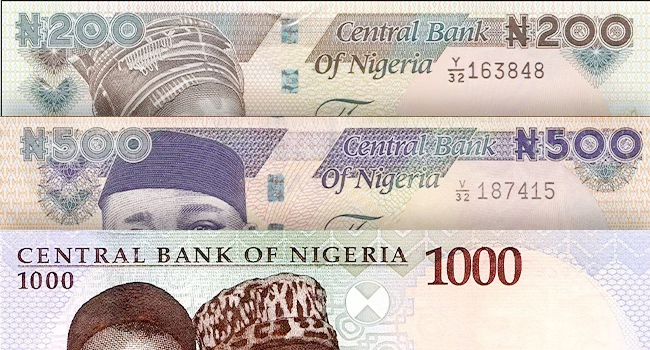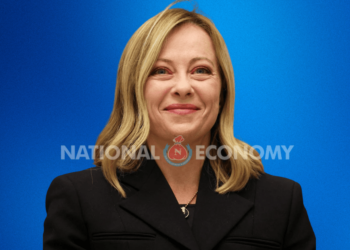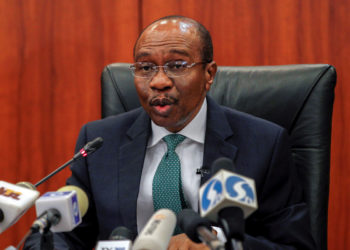Nigeria’s socio-economic pressures driven by national volatility, stagflation and national uncertainties require all hands to be on deck to address the most critical challenges that would enable the country exceed its own expectations. Fiscal and monetary authorities should lead that campaign.
On the monetary side, the Central Bank of Nigeria (CBN) is taking appropriate steps to make moderate and incremental progress in promoting value of the naira, deepen financial inclusion and discourage illegal hoarding of the naira by individuals.
In the eyes of many, the central bank seems to have demonstrated enough professionalism in defending the naira and by extension, savaging the Nigerian economy, especially, through its recent policy to redesign higher denominations of the naira, a move that has been widely commended by economic and financial experts.
Implications of the decision have become a front burner in economic policy discourse in Nigeria. The decision was prompted by the persistent large-scale hoarding of the naira which has resulted in a worrisome situation where over 80 percent of the currency in circulation is outside the banking system.
Other concerns that motivated the decision include the high cost of currency management, increasing the risk of naira counterfeiting, and long periods of denominations’ existence without redesign, among others. The plan is expected to yield numerous benefits including the adoption of electronic channels of transactions, reduction in currency management costs, and discourage counterfeiting and other criminal activities.
Redesigning Naira Notes
Addressing a press conference on October 26, CBN governor Godwin Emefiele rightly said that one of the reasons the CBN is redesigning the banknotes is based on the fact that currency management has faced several daunting challenges that have continued to grow in scale and sophistication with attendant and unintended consequences for the integrity of both the CBN and the country.
The challenges include: significant hoarding of banknotes by members of the public, with statistics showing that over 80 per cent of currency in circulation are outside the vaults of commercial banks; worsening shortage of clean and fit banknotes with attendant negative perception of the CBN and increased risk to financial stability; and increasing ease and risk of counterfeiting evidenced by several security reports.
More than N2.73 trillion out of the N3.23 trillion currency in circulation is outside the banking sector. That, the CBN said is unacceptable. With the new development, the central bank aims to take control of money supply by mopping up all cash from the economy, both within the vaults of banks and in the hands of citizens.
Not a few people and organisations have commended the CBN for taking a step that is seen to not only give the bank some marginal integrity, but to help addressing the fundamental issue of inglorious election funding that has proved to be detrimental to the national economy.
For CAPE Economic Research & Consulting, the measure will yield numerous benefits including helping to address the risk of naira counterfeiting, and long periods of denominations’ existence without redesign, among others.
In its November newsletter, the research firm however said in the ideal, the policy is not expected to have fundamental implications for the value of the currency, as it is only a matter of change in features and aesthetics. Nigeria is a country characterised by a high level of knowledge and policy information asymmetry, as well as widespread policy pessimism. That explains the fear in some quarter that the decision may trigger unnecessary fright which can lead to the rush to safety in the US dollar. For the CBN, that can only be temporal compared to the long-term positives the decision holds for the naira, financial crimes control and the national economy.
In the homestead, commendations have come in for the central bank from the least expected people, pointing to the popularity of the idea. For instance, former deputy governor of the apex ban Kingsley Moghalu belongs to the majority of those that have expressed full support for the central bank in redesigning of the naira. “If 80 per cent of bank notes in circulation are outside the banks, that is troubling,” he stated.
The move by the CBN is also a way to withdraw currency from circulation, an unorthodox way of tightening the money supply since the country is battling high inflation.
While there is skepticism about the possibility of policy to rein in inflation because of other existential issues like insecurity and other fiscal pressures, the general agreement is that the step has become necessary for national security and in the general interest of the economy.
For the Economic and Financial Crimes Commission (EFCC), the decision is apt and commendable. chairman of the EFCC, Abdulrasheed Bawa described the move by the apex bank as “a well-considered and timely response” to the challenges of currency management which has negatively impacted the country’s monetary policy and security imperatives.
Bawa did not mince words when he said it was heart-warming that “the CBN has demonstrated courage in taking this bold decision which, I believe, will bring sanity to the currency management situation in Nigeria.”
He called on operators in the Nigerian financial services sector, especially deposit money banks and bureau de change operators, to work within the guidelines provided by the CBN to ensure seamless withdrawal of the old currencies.
While some people have expressed different views on the issue, with some insisting that it won’t make a significant difference, there are those who thing is long overdue. One of those is the registrar, Institute of Credit Administration of Nigeria (ICA), Prof. Chris Onalo, in an exclusive Interview with LEADERSHIP yesterday, urged the CBN to take advantage of the old notes overhaul to control the number of physical cash in circulation by 80 per cent.
Apart from that, Onalo agrees with those who said the country does not even need more than 20 percent of the current cash in circulation for the economy to achieve the much-advertised cashless society.
“It is also an opportunity for the CBN to begin to downplay the use of physical cash in business transactions in its move toward its cashless economy policy. The cash in circulation should not be more than 20 per cent of the current physical cash in the system. The new move provides the apex bank the opportunity to have full control of the volume of physical cash in the system and I will advise they take advantage of the notes change to do that,” he pointed out.
Stating that CBN ought to have made the move earlier in respect of the huge mutilated notes in circulation, he added that this will ensure that those who may have stocked naira notes outside the banking system will have no option than to bring them into the banking system in a bid to change them to the new notes.
Curiously, the decision to redesign the currency did not go down well for some stakeholders, especially the minister of finance, budget and national planning, Mrs Zainab Ahmed who openly expressed sentiment against the move. Ahmad rejected the idea, warning that it will have a devastating effect on the economy during a budget defence at the Senate. The finance minister opined that the policy as rolled out at this time, portends serious consequences on the value of naira to other foreign currencies.
As if that was enough, Mrs Ahmed told the lawmakers that her ministry was not consulted by CBN on the planned naira redesigning and cannot comment on it as regards merits or otherwise, suggesting a lack of synergy or cooperation between the fiscal and monetary authorities.
It was then appealing to public watchers when the CBN came out clean about the process it went through to get approval for the redesigning of the naira. In a response, the apex bank insisted that it followed the law and due process to carry out the exercise, which is 12 years due.
Spokesman of the CBN, Mr. Osita Nwanisobi, expressed surprise at the minister’s claim, stressing that the CBN remains a very thorough institution that follows due process in its policy actions.
Management of the CBN relied on provisions of section 2(b), section 18(a), and section 19(a)(b) of the CBN Act 2007 to seek and obtained the approval of President Muhammadu Buhari in writing to redesign, produce, release and circulate new series of N200, N500, and N1,000 banknotes.
Urging Nigerians to support the currency redesign project, he said it was in the overall interest of Nigerians, reiterating that some persons were hoarding significant sums of banknotes outside the vaults of commercial banks. This trend, he said, should not be encouraged by anyone who means well for the country.
Furthermore, he noted that currency management in the country had faced several escalating challenges which threatened the integrity of the currency, the CBN, and the country, adding that every top-rate Central Bank was committed to safeguarding the integrity of the local legal tender, the efficiency of its supply, as well as its efficacy in the conduct of monetary policy.
On the timing of the redesign project, Nwanisobi explained that the CBN had even tarried for too long considering that it had to wait 20 years to carry out a redesign, whereas the standard practice globally was for central banks to redesign, produce and circulate new local legal tender every five to eight years.
While assuring Nigerians that the currency redesign exercise was purely a central banking exercise and not targeted at any group, the CBN spokesman expressed optimism that the effort will, among other goals, deepen Nigeria’s push to entrench a cashless economy in the face of increased minting of the eNaira. This, he said, is in addition to helping to curb the incidents of terrorism and kidnapping due to access of persons to the large volume of money outside the banking system used as a source of funds for ransom payments.
There is now a general confidence in the CBN to wit the fact that the naira redesign project is for the greater good of the economy.





